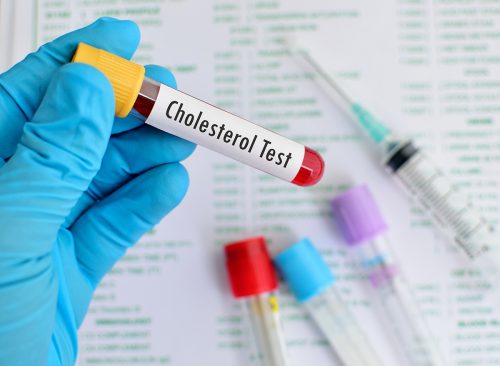
Forever chemicals—if they sound scary, it’s because they are. Scientists are increasingly sounding the alarm about a group of common chemicals known as per- and polyfluoroalkyl substances (PFAS, for short), which are used in thousands of products and have found their way into our food, water, and bloodstreams. The chemicals—mainly used to make products resistant to oil, grease, and water—are so resilient they may take hundreds or thousands of years to break down, hence their nickname. And they’re suspected to cause a wide range of health problems that may shorten our lives.

According to a new report in the New York Times Magazine, about 20 percent of PFAS (pronounced pee-fas) are present in drinking water. The rest we eat, inhale and rub on our skin. “Testing by government agencies and watchdog groups have found PFAS in carpets, furniture, nail polish, shampoo, mascara, nonstick cookware, dental floss, raincoats, fast-food wrappers, pizza boxes, microwave popcorn bags, yoga pants, sneakers, sanitary pads, tampons, menstrual cups, bedding, upholstery, children’s pajamas, paint, vinyl flooring and artificial turf.” They’ve been found in firefighting equipment and organic eggs, fish and meat, in dust and products used to get rid of it. Read on to find out about 11 ways they may be affecting your health.

A 2012 study found that children exposed to only small amounts of PFAS had a decreased immune response to tetanus and diphtheria vaccinations. Their bodies produced fewer antibodies to protect against those diseases than was typically expected.

Some PFAS travel to and accumulate in the liver. A 2022 review of studies by USC researchers found “consistent evidence” that PFAS increase the risk of liver impairment, including nonalcoholic fatty liver disease. That disorder has soared to epidemic rates in the U.S.

“Once inside cells, PFAS have been shown to increase oxidative stress, creating structural damage that has been associated with a wide range of conditions, including cancer, diabetes and cardiovascular disease,” the Times reports.

PFAs can penetrate the nucleus of the cell, which holds DNA. The chemicals have been found to bind with at least 14 receptors. (The dioxin in Agent Orange binds with only one.) That influences how cells express or suppress genes, which affect how those cells perform functions like producing energy and storing fat.

According to a study of U.S. Air Force servicemen published in July, testicular cancer has been associated with exposure to PFAS. Other studies have found a link between PFAS and kidney cancer, the CDC says.

Some scientists suspect that PFAS may throw off the endocrine system. This crucial network is run by the hypothalamus region of the brain and involves hormone-producing organs throughout the body.

Some experts worry that PFAS are “obesogens,” chemicals thought to disrupt the system’s metabolism, making it difficult or impossible to maintain a healthy weight. “Obesity is an epidemic,” Philippe Grandjean, a Danish professor of environmental medicine, told the Times. “And we can’t explain it by lack of physical activity or changing habits.”

“Are PFAS the cause of ADHD? Do they increase the risk of autism? There is plenty of evidence to say we should be concerned,” Alan Ducatman, a clinician and professor emeritus at the West Virginia University School of Public Health, told the Times. “There’s not enough evidence to say we know,” he added. “But we really do need to know.”

In March, a 20-year study by the N.I.H.’s Environmental Influences on Child Health (ECHO) group found that increased prenatal exposure to PFAS was associated with lower birth weight. Scientists found the same result in studies on rodents.

According to the CDC, PFAS have been associated with an increased risk of high blood pressure or pre-eclampsia in pregnant women.

In the late 1990s, DuPont was sued for using a PFOA, a type of PFAS, to make Teflon. As part of a settlement, the company funded a study to see if people living near a Teflon plant had been harmed. Published in 2012, the research found a “probable link between PFOA and high cholesterol, ulcerative colitis, thyroid disease, testicular cancer, kidney cancer and pregnancy-induced hypertension,” the Times reported.














